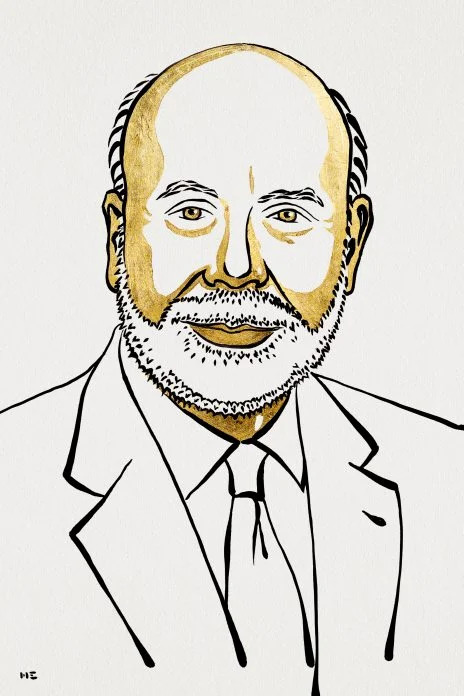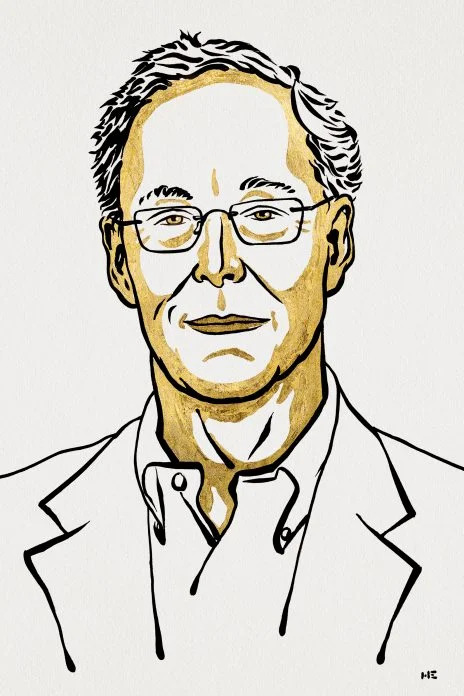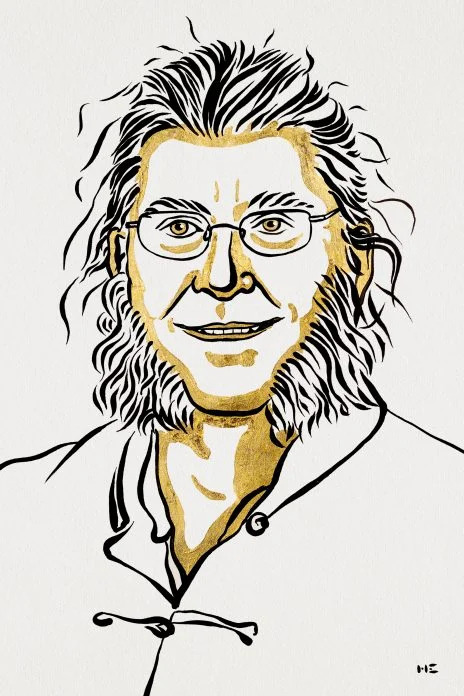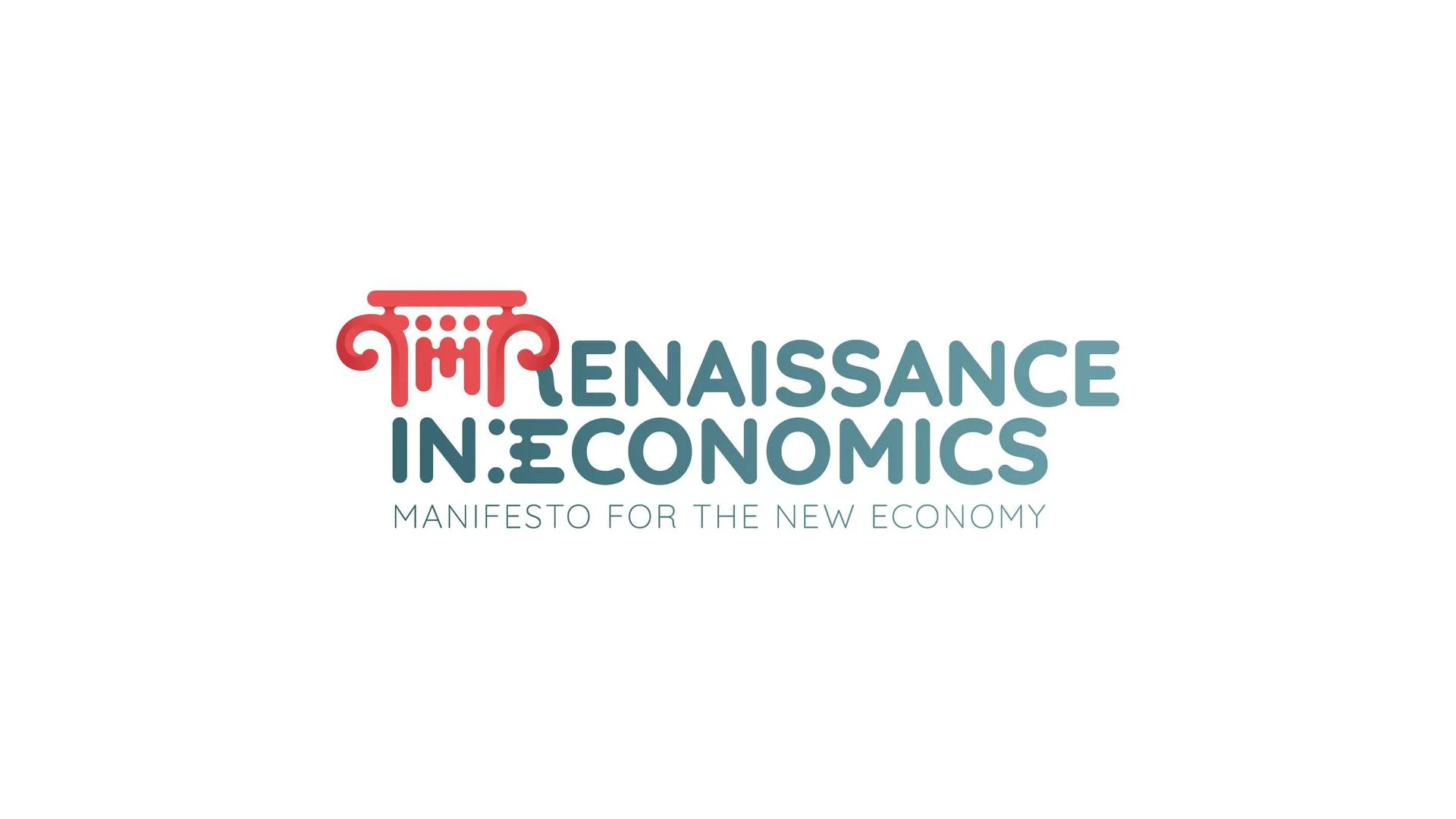
Economists & Prizes
2022 Nobel Prize in Economics - The Winners
Read a summary using the INOMICS AI tool
The prestigious 2022 Sveriges Riksbank Prize in Economic Sciences in Memory of Alfred Nobel, better known as the Nobel Prize for Economics, has been awarded to three American economists: Ben S. Bernanke, Douglas W. Diamond, and Philip H. Dybvig. The prize, awarded by the Royal Swedish Academy of Sciences, was given to these economists for their contributions to “research on banks and financial crises”. The Prize notes that these three economists laid the groundwork for this research in the early 1980s.
This article gives an overview of the work that won these economists the Prize, and a brief bio for each economist. You can read more about the reasoning behind the awarding of the Prize from the Royal Swedish Academy of Sciences’ press release page.
The Research that Won This Year’s Prize
Diamond and Dybvig conducted research that illuminated the role of banks as intermediaries. Their groundbreaking paper published in the Journal of Political Economy in 1983 develops the Diamond-Dybvig model, which is widely cited and still in use today.
Banks have a unique role in the economy; consumers save their money in banks for safekeeping, and to grow their wealth. At the same time, borrowers want to use this money to build, invest, and otherwise fuel their economic activity. Banks use consumers’ savings to become lenders to these borrowers.
Diamond and Dybvig’s research showed that banks are the optimal way for the economy to carefully balance the needs of savers (or lenders) and borrowers. Diamond additionally argued that this position makes banks the best entity in the economy to assess creditworthiness of borrowers, and thus to make decisions about which investments are good enough to invest society’s money into.
Problems for a bank can arise when savings are demanded back by the lenders who need their money for an unexpected circumstance; banks do not actually hold all of their reserves in liquid form. A bank run occurs when too many consumers demand their money back from the bank than it is currently holding. This can cause a bank to fail.
Ben Bernanke, in his analysis of the Great Depression of the 1930s, showed that bank runs were an important reason that the Depression grew so severe. One key reason for this is that when banks fail, the information they contain about consumers’ creditworthiness can be lost. This information loss makes it more difficult for society to allocate savings to the best investment opportunities, limiting opportunities for economic growth.
Although not a reason why he was selected for this award, Bernanke additionally served as the Chairman for the United States Federal Reserve during the financial crisis and Great Recession in 2006 - 2010. INOMICS has previously assessed how economists lost clout for failing to recognize the danger to the financial system, and how the discipline’s reputation has been recovering.
Tore Ellingsen, Chair of the Committee for the Prize in Economic Sciences, notes that “The laureates’ insights have improved our ability to avoid both serious crises and expensive bailouts.” This is one of the key reasons for awarding this year’s Prize to these economists.
Ben S. Bernanke: Bio

Illustrator: Niklas Elmehed © Nobel Prize Outreach
Ben Bernanke was born in the state of Georgia in the United States. He received his bachelor’s degree in economics in 1975 from Harvard and his PhD in economics in 1979 from MIT. In 1985, Bernanke was made a professor of economics and public affairs at Princeton University. He later became the chair of the Economics Department at Princeton from 1996 to 2002.
Bernanke became a member of the Board of Governors at the U.S. Federal Reserve in 2002, and later the Chairman in 2006. As chairman, Bernanke led the Federal Reserve’s response to the financial crisis and Great Recession of 2006 to 2010. During this time, Bernanke led the Federal Reserve to take unprecedented action, including the implementation of quantitative easing. This is a process where the central bank purchases securities and long-term treasuries on the open market to stimulate economic growth. Bernanke also began holding quarterly press conferences to explain the decisions of the Federal Reserve’s Federal Open Market Committee, which helped improve the organization’s transparency.
Bernanke is the author of several books and textbooks, and has also published articles on monetary policy, macroeconomics, and other economic issues. His other accolades include holding a Guggenheim and Sloan Fellowship, being a fellow of the American Academy of Arts and Sciences and the Econometric Society, and serving as the director of the National Bureau of Economic Research’s Business Cycle Dating Committee.
Douglas W. Diamond: Bio

Illustrator: Niklas Elmehed © Nobel Prize Outreach
Douglas Diamond is an expert specializing in the study of financial intermediaries and financial crises who grew up in Chicago in the United States. He earned his economics bachelor's degree in 1975 from Brown University. He later earned his Master's degrees in 1976 and 1977, and went on to earn a PhD in economics from Yale University in 1980. He has won numerous awards, including the Morgan Stanley-American Finance Association Award for Excellence in Finance in 2012. In 2013 he received an honorary degree, Doctor Honoris Causa, from the University of Zurich. In 2016 he received the CME Group- Mathematical Sciences Research Institute Prize in Innovative Quantitative Applications.
Diamond is the Merton H. Miller Distinguished Service Professor of Finance at the University of Chicago. He has additionally taught at Yale, and was a visiting professor at MIT, the University of Bonn in Germany, and the Hong Kong University of Science and Technology. He is a National Bureau of Economic Research research associate, a visiting scholar at the Federal Reserve Bank of Richmond, president of the American Finance Association and the Western Finance Association, and a member of the National Academy of Sciences. Diamond is also a fellow of the Econometric Society, the American Academy of Arts and Sciences, and the American Finance Association.
Philip H. Dybvig: Bio
Illustrator: Niklas Elmehed © Nobel Prize Outreach
Philip Dybvig grew up in Dayton, Ohio. He received a bachelor's degree in mathematics and physics from Indiana University, and his PhD in economics from Yale University in 1979. He taught at Princeton University and then later Yale in 1981. Dybvig left Yale in 1989 to join the faculty of Washington University, where he became the Boatmens Bancshares Professor of Banking and Finance. He served as President of the Western Finance Association in 2002-2003, on Washington University's Investments Committee, and on the National Endowment Survey Advisory Committee of the National Association of College and University Business Officers.
Dybvig has earned several awards in China, including Changjiang Scholar, Thousand-person plan, Chengdu Jinsha Friendship Award, Sichuan Golden Pinnacle Award, and the Chinese Central Government Friendship Award. He runs a research program each summer in Chengdu, Sichuan, China, where he is the Director of the Institute of Financial Studies at the Southwest University of Finance and Economics.
You can read the full Prize in Economic Sciences press release at the Royal Swedish Academy of Sciences’ webpage.
Header image picture credit: Pixabay.com
References
1: https://www.federalreservehistory.org/people/ben-s-bernanke
2: https://www.chicagobooth.edu/faculty/directory/d/douglas-w-diamond
3: https://dybfin.wustl.edu/misc/about.html
4: https://www.nobelprize.org/prizes/economic-sciences/2022/press-release/
5: The Sveriges Riksbank Prize in Economic Sciences in Memory of Alfred Nobel 2022. NobelPrize.org. Nobel Prize Outreach AB 2022. Thu. 13 Oct 2022.
-
- PhD-Studiengang
- Posted 1 week ago
Graduate Program in Economics and Finance (GPEF) - Fully funded Ph.D. Positions
Starts 1 Sep at University of St.Gallen in Sankt Gallen, Schweiz
-
- Scholarship, Conference, Prize / Contest
- Posted 2 weeks ago
Call for Applications: Gateway to Global Aging Education Research Hackathon
Between 27 Jul and 30 Jul in Washington, USA
-
- PhD Candidate Job
- Posted 2 weeks ago
3 PhD positions at the Vienna Graduate School of Economics (VGSE)
At Vienna Graduate School of Economics - VGSE in Vienna, Österreich















